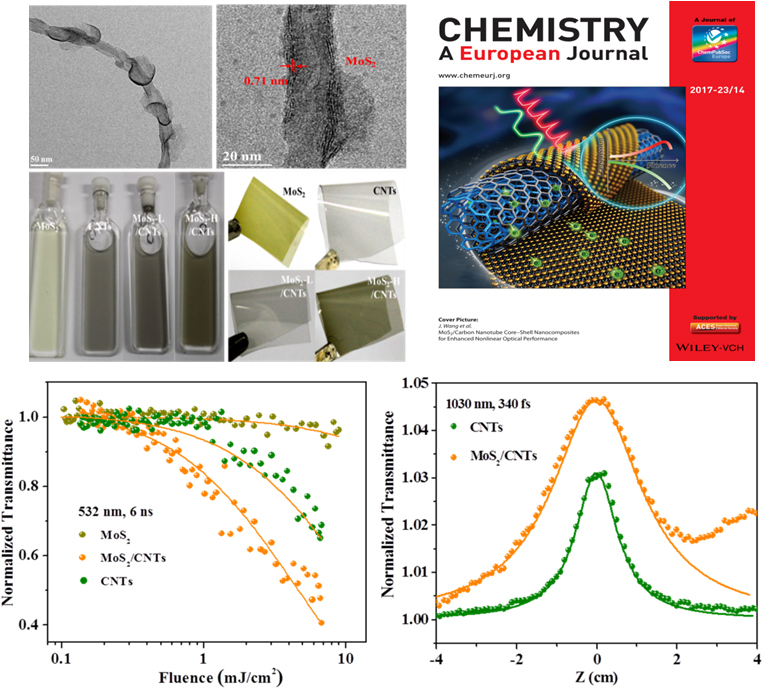The unique structure and nonlinear optical performances of two-dimensional (2D) nanomaterials make them showing potential applications in nanophotonic devices, such as mode-lockers, optical limiters, and optical switches. 2D transition metal disulfides (MX2, M=Mo, W, et al.; X=S, Se, Te) have attracted great interests in wide areas due to their semiconducting features, strong exciton binding energy, and layer-dependent band gaps. However, the nonlinear optical (NLO) performances of single materials cannot meet the requirements of the devices. Forming heterostructure is one of the efficient ways to improve the NLO performances of single materials. Recently, researchers in group of Prof. Jun Wang from Key Laboratory of Materials for High-Power Laser, Shanghai Institute of Optics and Fine Mechanics (SIOM), synthesized nanocomposites of layered MoS2 and multi-walled carbon nanotubes (CNTs) with core–shell structure via a one-step solvothermal method, and investigated their NLO modulation behaviors towards pulsed lasers with different time-domains. Results show that under fetosecond (fs) laser pulses, the light is firstly allowed, and then is blocked to pass through the sample due to the existence of charge transfer, leading to the transition from saturable absorption to optical limiting (OL); while for nanosecond (ns) pulsed lasers, OL is observed, which is mainly arising from the thermally induced light scattering. The nanocomposites show enhanced third order nonlinear optical performances for both fs and ns laser pulses, compared to those of MoS2 and CNTs alone. The work has been officially published in journal of Chemistry A European Journal with the title as “MoS2/carbon nanotube core–shell nanocomposites for enhanced nonlinear optical performance” and selected as the inside cover. 
|

